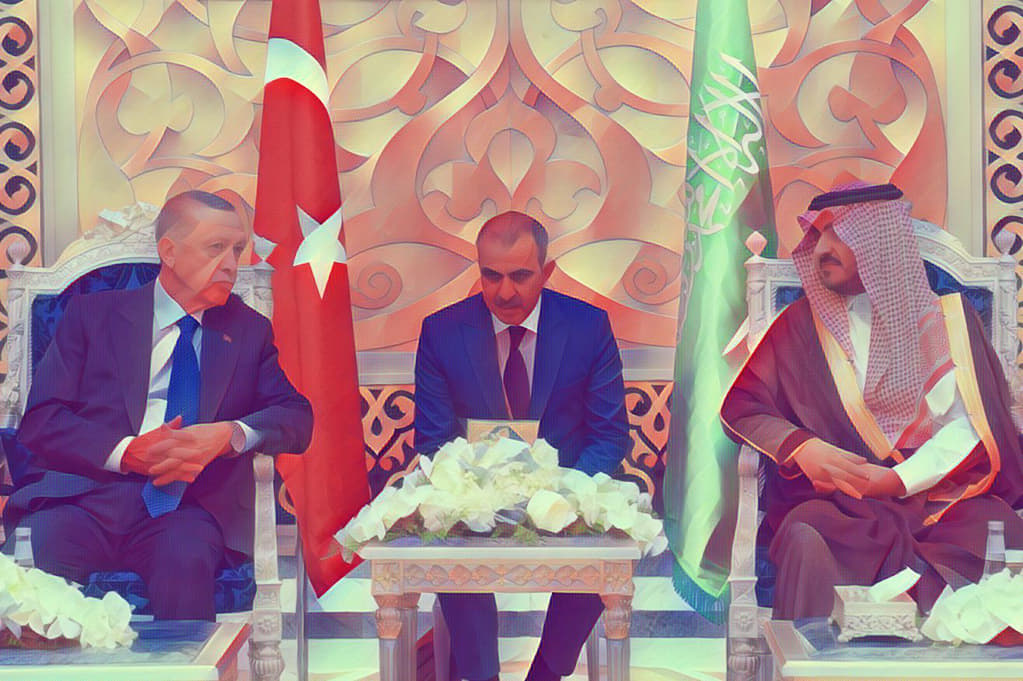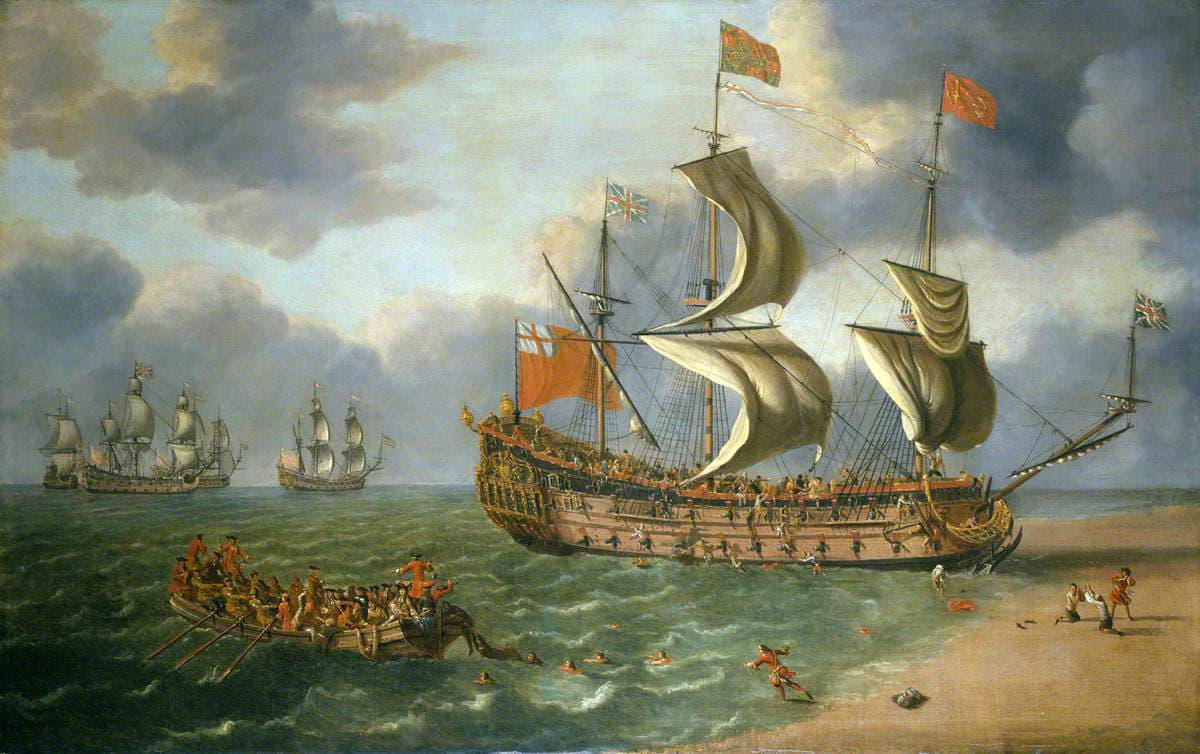For the first time in the French language, a full-scale study has been published on Major-General Professor Alexander Andreyevich Svechin (1878-1938), father of the Russian Operative Art, Professor at the Fruntze Academy (1920-1937), and alongside Clausewitz, one of a tiny handful of the very greatest military thinkers. This book is intitled Conduire la Guerre, and takes the unusual form of answers to 356 questions e-mailed, during lockdown, to the military historian Benoist Bihan by Zhukov’s biographer Jean Lopez. No matter one’s political views, this book is absolute required reading to get a handle on the questions Colonel Douglas MacGregor never fails to put during his interviews on the war in the ex-Ukraine: “What is our strategy? What are our war aims? Where is this taking us?”
A topic unrelated to the wolf, you say? Well, as a layman, Mendelssohn Moses will shortly review Conduire la Guerre for The Postil. In the interval, reading it has served to clarify what sort of offensive needs to be mounted by the European Commission’s countless victims.
In a nutshell, the present article deals with the European peasantry and mountain-dwellers, driven from their property by wolf-packs that are sponsored and protected by European regulations, transposed into domestic law and enforced throughout Western Europe. To date and in the main, the peasants’ reaction has been variously shocked, hurt, defensive, distressed or disorderly; only recently have men begun to organise over national boundaries to hit back. For as we shall see, no “defence” measures against the wolf will work. Because behind the wolf, stands the European Commission fronting for the financial “élite.”
This is war, and not just against the wolf. And so, “What is our strategy? What are our war aims? Where is this taking us?”
Drive out the Peasants and Starve out the City-Dwellers
Amongst the unceasing, innumerable offences against human life perpetrated by the European Commission’s gnomes and lackeys, there stands out a singularly repulsive 1992 Directive “Habitat-Fauna-Flora.”
For No Apparent Reason (there are zoos for such beasts), in 1992 the wolf thus became a “strictly protected” species and the victim-nations, namely those in the EU, compelled to encourage its increase and expansion.
There is nevertheless, an Unapparent Reason. The European Commission and its train of man-haters are waging war on Man. Like SARS-Cov-2, the climate non-emergency, and other forms of obfuscation, the wolf is a tool.
In terms of the war on the peasantry, the wolf is a weapon, precisely as though it were a missile or a tank.
I repeat, this is a war on Man.
This is War—War on Man
Under the French Environmental Code’s Section L. 411-2, a peasant or breeder whose livelihood is threatened must demonstrate that three requirements have been met:
- substantial harm to livestock;
- lack of other satisfactory (sic) solutions;
- the wolf packs must be allowed to go on living under “favourable” (sic) conditions in their natural domain” (editor’s note: in Western Europe, wolves have had no “natural” domain for over 200 years.)
Shooting a wolf without official permission is punishable with up to two years’ jail and 150,000 € in fines.
Until serious harm have been incurred, such permission is virtually impossible to obtain while most European countries forbid peasants, and more generally, the citizenry, from holding the firearms they would otherwise need under the circumstances. In the light of what we shall now see, even those amongst us who have never devoted a moment’s thought to the matter of an armed citizenry, are having very much of another think coming.
In plain speech: the peasant, whose lands may well have been in the family for several hundred years, is expected to be duly terrified, swoop up his children and chattels, and flee.
Needless to say, the European “authorities” never refer to the fact that the peasants and breeders now being literally cast to the wolves, inhabit the hills and mountains to produce what city-dwellers eat.
Make no mistake about it: such is the European Commission’s purpose.
Meanwhile, the great brown bear, another “strictly protected” species, has just struck and killed a youth in one of the world’s most densely-populated nations, Italy.
That too is the purpose.
The Death of Andrea Papi, Celebrated by a Love-Poem to Jj4
Exactly two months ago, in the early morning of April5, 2023 at Caldes (Val di Sole) in the Trentino, Andrea Papi, a secondary-school teacher aged 26, was out jogging when he was attacked and killed by a bear bearing code name Jj4.
When the provincial authorities ordered the bear shot, the Usual Suspects, operating behind their Animal Rights and Nature mask (Oipa, Enpa, Lav, Leal and Centopercentoanimalisti) announced that they would take the legal battle for the man-eater’s life to the highest Courts in the land.
In scenes recalling the run-up to Wilhelm Tell’s adventures with a crossbow, furious peasants and mountaineers from the surrounding hills gathered at Andrea Papi’s funeral. Unmoved, a virago named Elena Baruzzi seized the occasion to write a prose-poem to celebrate Jj4’s deed—one cannot make this up.
Earlier, and by some irony of fate, on August 30, 2022, up North near Hannover, on Frau Ursula von der Leyen’s splendid estate (erasing Pfizer’s cellphone messages, a lucrative activity?) her 30-year old pony Dolly was killed by a wolf identified by code name GW950M and known to have killed much sheep and cattle.
Doubtless disgusted at finding that Me, Myself and I might, for once, be on the receiving end of the misery wreaked on thousands of peasants … well, suffice it to say that Strings were Pulled for the wolf to be shot. But No! Hoist by one’s own Petard! The Usual Suspects popped up, and have so far apparently succeeded in keeping this man-eater too alive.
We shall shortly turn to Professor Valerius Geist’s Scale of Aggression, the clearest-yet approach to evaluating the degree of actual, imminent peril to Man, but first, recent statistics from Western Europe.
Carnage in Western Europe
According to a pro-wolf broadcast on Radio France: “In June 2022, the Office français de la biodiversité reported that there were 1,000 wolves in France, with 125 wolf-packs. The Italian wolves have recently begun to hybrid with those streaming in from Eastern Poland via Germany. The wolves have taken over the entire Alpine arc, currently their centre of operations, and are now moving into the Pyrenees, the Massif Central and even into the Jura where cattlemen demand they be shot further to incessant attacks on their herds. In France, every year, 11,000 to 12,000 sheep are killed…”
While Radio France gives no figures for goats, donkeys, geese, ducks, hens, rabbits, or pet dogs and cats, three to four thousand are said to be killed every year now, which works out at something like 15,000 pets and farm animals dead in France alone, each year.
Even the giant and very costly (5,000 euro a dog) Abruzzese guard dogs, brought in throughout Europe as a last-ditch stand by the unarmed peasants, are being attacked and killed by the wolf-packs; only the Turkish Kangal dog, larger and heavier than a man, seems able to fight back.
As the press generally refrains from reporting such “non-events,” the plan can proceed apace.
Thus, in Slovenia, a recent article from Euronews reports, “In Slovenian Carinthia, wolf attacks have become so numerous that sheep-breeders have begun to throw in the towel.”
On the Austro-Slovenian border, in 2022, four times as many sheep and cattle were killed by wolves relative to 2021.
In Germany, 161 wolf-packs (about 1,600 wolves therefore) roam the woods and hills, plus 43 wolf pairs and 21 solitary prowling wolves. One identified wolf still at large is known to have killed at least 76 sheep.
Tens of millions of Euros in tax-payer funds currently go towards counting the specimens, affording them (unbelievably) veterinary care, genetic identification and so forth, all for the benefit of this vermin, rooted out of Europe for good reason in the 18th Century, after a killing-spree that lasted over a thousand years, from the fall of the Roman Empire to modern times.
This included a siege of Paris by wolf packs in the 15th Century. After fourteen women had been killed within the city gates, the wolves reached Notre Dame Cathedral in 1439, where a pitched and eventually decisive battle took place between men and the wolf packs.
Since in Europe, wolves have no predators, thanks to the European Commission they increase and multiply by 30 to 40 % a year.
From all over Europe, especially from Italy where matters are virtually out of control, we hear terrible news; propriety prevents us from republishing the images, but the reader should know that it is among the wolf’s habits to eat its prey alive.
The Wolf—Probably the only Living Creature able to Extinguish the Human Race
The reader must try to understand this: the wolf is probably the only living creature able, in theory, to extinguish the human race.
For the wolf is the only animal known to kill, not to eat, but for the sake of killing: once a wolf is got loose amongst a herd of sheep, a flock of geese or a crowd of children for that matter, it cannot stop. It will go berserk, what the Germans call a Blutrausch or Amoklauf.
Wolves will generally kill pet dogs; those they “keep,” give rise to a hybrid wolf-dog species, still more mentally unstable, hate-crazed, indeed psychopathic to use a term from human psychology. As for the farm animals which survive the attacks, some are seen to shake and tremble uncontrollably for hours, others die of shock while yet others are so traumatised, they will avoid the site where the attack occurred for years.
And what of the children who live in rural areas now infested with this vermin? Like their parents, who may commit suicide or suffer a nervous breakdown, the children’s fate seems to interest no-one, the authorities being doubtless more exercised by a Trans-Gender event. What would your child say if he awoke to find that his pet dog or cat had had its eyes pecked out and been killed by a raven or seagull? Well, these children of the peasantry get up to find that their pet lamb, goat or donkey has been killed by wolves in the night—while their parents’ flock has been torn to bits.
Some children go into shock and are hospitalised; they will never fully recover, as a child cannot rationalise the irrational hatred of Man these European regulations reflect.
In the infested areas, peasants will allow the children outside only with a guard-dog or adults bearing clubs and sticks present:
“Sigle now fears leaving his three-year-old boy in the pasture, and has stopped bringing his six-month-old in the pram to pasture as he works. ‘It’s not safe to do that now’ he told Bild Zeitung. Another peasant told the paper: “My children are aged two and four. Formerly I’d have them sit in the grass as I worked, about 150 m away. Never used to worry. Now I’m on edge the whole time.”
On May 1st 2023 in an Alpine village called Oberdauf (Bavaria) where wolves have set to destroying the livestock, a hundred or so peasants met up with Bavarian President Markus Söder and his Economics Minister, come up from Munich. After listening to the peasants, Söder stated “the wolf does not belong here.” The uproar in the Christian Democracy (CSU) has reached a point, that the Party is drafting a Bill to get the wolf out of Germany, full stop.
As one would expect, given the German Green Party’s “escalate” modus operandi in the ex-Ukraine, Steffi Lemke, Green Minister of the Environment, seized the opportunity to escalate. Calling for “better protection for the wolf,” in true sophist vein she asked: “how might one call for protecting animal species in Africa, whilst declining to protect the wolf here?”
Professor Valerius Geist and the Scale of Geist
As I read an excellent article by an Italian mountain-dweller, Michele Corti, dated December 3, 2022 the puzzle-pieces clicked into place.
Dr. Corti refers to the decades of work put in by a Russo-German zoologist, Professor Doctor Valerius Geist (1938-2021), who spent most of his adult life in Western Canada and radically altered his initial view of the wolf-peril.
Although the Scale of Geist cannot be found in the mainstream media, dozens, perhaps hundreds of articles on both scientific and peasants’ journals and Websites, have presented Geist’s ideas: in Range Fire, Outdoor Hub, Statement by Valerius Geist pertaining to the death of Kenton Carnegie (2007), and When do wolves become dangerous to humans?
In Professor Geist’s own, carefully chosen words, this is how it works.
These are the 7 Stages Leading to an Attack on People by Wolves
- Within the packs territory prey is becoming scarce not only due to increased predation on native prey animals, but also by the prey evacuating home ranges en mass, leading to a virtual absence of prey. OR Wolves increasingly visit garbage dumps at night. We observed the former in summer and fall 1999. Deer left the meadow systems occupied by wolves and entered boldly into suburbs and farm, causing—for the first time—much damage to gardens, sleeping at night close to barns and houses, which they had not done in the previous four years. The wintering grounds of trumpeter swans, Canada geese and flocks of several species of ducks were vacated. The virtual absence of wildlife in the landscape was striking.
- Wolves in search of food began to approach human habitations—at night! Their presence was announced by frequent and loud barking of farm dogs. A pack of sheep-guarding dogs raced out each evening to confront the wolf pack, resulting in extended barking duels at night. The wolves were heard howling even during the day.
- The wolves appear in daylight and at some distance observe people doing their daily chores. Wolves excel at learning by close, steady observation. They approach buildings during daylight.
- Small bodied livestock and pets are attacked close to buildings, even during the day. The wolves act distinctly bolder in their actions. They preferentially pick on dogs and follow these right up to the verandas. People out with dogs find themselves defending their dogs against a wolf or several wolves. Such attacks are still hesitant and people save some dogs. At this stage wolves do not focus on humans, but attack pets and some livestock with determination. However, they may threaten humans with teeth exposed and growling when these are defending dogs, or show up close to a female dog in heat, or close to a kill or carrion defended by wolves. The wolves are still establishing territory.
- The wolves explore large livestock, leading to docked tails, slit ears and hocks. Livestock may bolt through fences running for the safety of barns. The first seriously wounded cattle are found; they tend to have severe injuries to the udders, groin and sexual organs and need to be put down. The actions of wolves become more brazen and cattle or horses may be killed close to houses and barns where the cattle or horses were trying to find refuge. Wolves may follow riders and surround them. They may mount verandas and look into windows.
- Wolves turn their attention to people and approach such closely, initially merely examining them closely for several minutes on end. This is a switch from establishing territory to targeting people as prey. The wolves may make hesitant, almost playful attacks biting and tearing clothing, nipping at limbs and torso. They withdraw when confronted. They defend kills by moving towards people and growling and barking at them from 10-20 paces away.
- Wolves attack people. These initial attacks are clumsy, as the wolves have not yet learned how to take down efficiently the new prey. Persons attacked can often escape because of the clumsiness of the attacks. A mature, courageous man may beat off or strangulate an attacking wolf. However, against a wolf pack there is no defence and even two able and armed men may be killed. Wolves as pack hunters are so capable a predator, that they may take down black bears, even grizzly bears. Wolves may defend kills.
The Chances of Wolves attacking Humans is very High or nearly Certain Where:
- Wolves are very abundant.
- Wolves are protected de facto or de jure and do not experience humans as hunters.
- Where natural prey populations are declining in abundance and diversity
- Where there are opportunities to feed regularly on a rich food source such as a garbage dump filled with kitchen wastes, or easily hunted alternatives to natural prey, such as pets and livestock.
- Where populations of domestic livestock are sparse, and cannot maintain wolves for any length of time
- Where “experts” inform people that wolves are harmless and pose no danger, and are lulled into a false state of security.
- Where wolves are emboldened to visit human habitations, approach humans closely in order to observe humans at leisure and get away with maiming and killing pets or livestock.
- Where wolves are not deterred after attacking and being only temporarily dissuaded, while the victim is criticized and blamed and the misbehaviour of wolves is explained away in some “scientific” fashion.
- Where persons meeting wolves run away, look away, turn their back, show signs of fear, physical unsteadiness or illness.
For Dr. Michele Corti, “we have reached the final rung on the Scale of Geist. Very recently, we have learnt of wolf attacks near homes, and right into stables and stalls. A great many wolf attacks have involved pet dogs, right in front of their master. A woman was attacked by a wolf and her clothing torn whilst she was out walking near Alessandria… This is precisely the escalation Prof. Geist describes. There will shortly be wolf attacks on Man.”
Marcel Züger: “The Wolf, A Danger to Children”
Prof. Dr. Geist is not the only scientist to have drastically changed his view of the problem.
In July 2022, Swiss biologist Marcel Züger told the French on-line hunters’ magazine Chassons that he had made a grave error 25 years ago, when he rejoiced at the birth of wolf-cubs.
“The world now belongs to the wolf; they no longer fear Man and have become ever-bolder. For the wolf, the world of men is just a supermarket, but with no cash register and nothing to pay. As they realise they can up the ante still further, they will become a real threat to the population, and especially to children… The more they become used to seeing men, the closer they will move in.”
Züger told the magazine that the wolf propagates so rapidly—+30 to 40 % of the beasts a year—that the population is now doubling every two to three years. Every single wolf has the genetic potential to become a major problem. He adds:
“European wolf-protection policy essentially means propagating the species. Wolves are only very rarely shot. Millions of Euros of European funding goes to purportedly “defensive” measures (for the peasants—editor’s note). It is however a complete illusion to imagine that such measures, no matter how sophisticated, will keep the wolf from its prey. Perforce, the day will come when the EU will have to change its policy.”
Fontainebleau! Foresta immensa e solitaria!
Contrary to what one hears in Verdi’s Don Carlo, the Forest of Fontainebleau close by Paris, may still be somewhat “immensa” but most certainly not “solitaria.” There, wolves have been spotted, in a pleasure-spot frequented by parents and children on weekend excursions.
On January 11, 2023, after a hiker reported seeing a wolf or wolves in that forest at night (he took photographs), a wolf was killed on the motorway near a Fontainebleau roundabout in January.
Wolves have been seen very near Compiègne. They have killed farm animals in Brittany. They roam the forests of Picardy. Hunters have told me that less than 30 km from Paris, they have sighted wolves, and are henceforth very careful to keep their dogs close.
Italy: Attacks on Women, Children and Pet Dogs in City Centres. You Have been Warned
The very day after the original, French version of this article was published, leading to over 200 reader comments (!)—some demanding that the Website reveal Mendelssohn Moses’ “true” (?) identity or ban his articles—on Sunday May 21, 2023 at Palombaro (province of Chieti), a woman was attacked by a wolf in front of the town’s hotel. The beast seized the woman’s dog and made off with him. Although the dog was later found dead, while the woman was injured as she tried to save him and had to be hospitalised, Aidaa (Association in Defence of Animals and Environment) sprang to the wolf’s defence. Praising the authorities’ decision to merely put an electronic collar on the wolf, Aidaa stated: “there mustn’t be a reckoning with the wolf. No, one must simply observe its behaviour, and eventually, correct it (sic), but it musn’t be shot for just doing what wolves do—that’s no cause for killing it.”
“Suffer little children to come unto me!” Luke 18:16 ?
On May 7th, shortly before a bicycle race began, a spectator strolled down the Vasto Marina (Abruzzo) beach promenade called Cordella with his two small children. Suddenly, an animal “strangely” like a wolf appeared out of nowhere, threw itself on the girl and tore her clothing. As the father began to shout and lash out, the wolf turned about and attacked passers-by, only to disappear as the latter counter-attacked. The infant girl was hospitalised.
According to Vasto’s Mayor Francesco Menna, such incidents have become commonplace; he spends his day ringing the local Government and the Ministry of Environment at Rome. According to Chieti Today, the local paper, “at Vasto, wild animals which are either wolves or dog-wolf hybrids, are constantly being sighted.”
Four days later, another attack. As she stood in line at Pizzeria Rusticana in Vasto, a young woman was suddenly set upon by a wolf, which was apparently fought off by passers-by. She was hospitalised.
Concerned to the point that he has had his personal cellphone number and e-mail address published in the press (338-6907436/ [email protected]) in order to collect alerts, Mayor Menna has told the press he would journey to Rome to meet the Minister, as the lives of his fellow-citizens and of the local peasantry are in jeopardy. On May 22nd, the Vasto municipal council voted up a resolution, calling upon the authorities to trap wild boar and wolves now devastating the area.
There is more, much more.
For months now, wolves have been venturing into large and medium-sized towns in Italy. They have been sighted in Tuscany—at Florence, in the centre of Arezzo, at Lucca, on the Rimini coast. In the Piemont, they have taken to the outskirts of towns, a mere 8 km from the former capital Turin.
But fear not! The mainstream press has its “expert” on hand, forest ranger Luca Giunti, who told the Turin daily La Stampa in late April: “As the Western Alps are now over-run with wolves, they’re wending their way downhill—Superga, Marentino, Montaldo and the Asti area.”
And Giunti continues casually
“They’ll be attacking farm animals and people’s pets, not just prey in the woods. Not to frighten you, but you’ll want to get this straight. In the hills about Turin, the wolf will force us to change our habits, not just us “professionals” (peasants, winegrowers etc., editor’s note) but all of us. We’ve got to get it through our heads that we shall have to put up with this business, because the wolf’s a protected species.”
That Luca Giunti prudently refrains from referring to the Scale of Valerius Geist should be no surprise. What, Me Worry? As a forest-ranger, he more than likely holds a gun-licence and makes good use of it to stay safe and whole. A few days later In Italia published a Wolf Warning in the form of a How-To, with useful advice such as “should you be faced with a wolf, make sure to clamber up a tree or onto some other high-up object.” Holding a dog or child in one’s arms, that will doubtless prove a Walk in the Park.
Or, as per the by-line to James Howard Kunstler’s Swiftian piece, “The Next Big Thing” a few days ago: “‘Psychopaths and narcissists aren’t ‘mentally ill,’ they’re just horrible people, and they get worse with age, not better.’—Aimee Terese on Twitter.”
In the meantime, wisdom suggests that in Western Europe, one be extremely watchful in the mountains, woods and hills, that one never leave a child or pet unattended, and that, especially in Italy, one never take to the mountains without a gun-licence and the attendant firearms.
Note: Since I first began to look at the figures about six years ago, wolf attacks have become ever-more frequent and serious, keeping in mind that the majority are never reported due to the mainstream-press blackout. The attacks tend to be reported only in countries where the wolf is not a “protected species,” i.e., without Western Europe and parts of the USA.
Mendelssohn Moses writes from France. (Revised and amended from the original French on Réseau International).
Featured: La Chasse aux Loups. Copyright: Musée Antoine Lecuyer.











